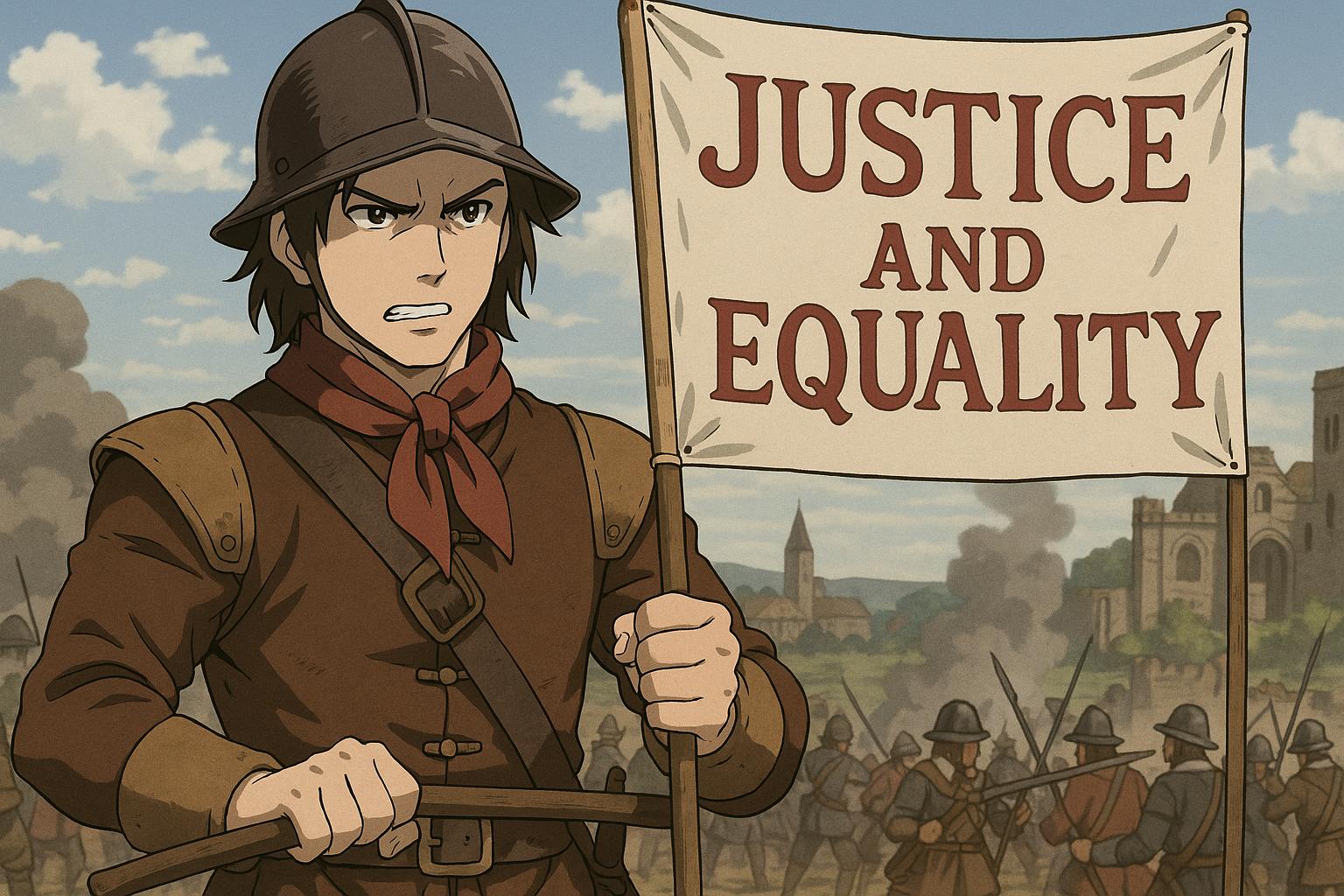Almost four hundred years ago, on 17 May 1649, three soldiers were executed on the orders of Oliver Cromwell, the military leader of the Parliamentarians during the English Civil War. These men were part of the Levellers, a group advocating for civil rights and religious tolerance. Initially aligned with Cromwell against King Charles I, the Levellers eventually found themselves at odds with him as they perceived his growing authority as dictatorial. This discord culminated in the capture of approximately 300 Levellers by Roundhead troops, leading to the execution of three prominent figures: Cornet James Thompson, Corporal Perkins, and Private John Church.
The tensions that escalated into this tragic event stemmed from the Levellers’ dissatisfaction over wages and their deployment to fight in Ireland. This discontent among the ranks of the New Model Army marked a significant turning point, as their executions symbolised the suppression of their radical ideals. Today, the legacy of the Levellers is celebrated annually in Burford, as a reminder of their struggles for equality and justice.
On the 50th anniversary of this poignant commemoration, Levellers Day took place on 17 May 2024, serving as both a remembering of the past and a platform for discussing contemporary issues. Attendees were encouraged to reflect on the lessons of history, linking the challenges of 1649 to those still faced today. The event featured a vibrant programme that commenced with performances by local choirs in Burford Cemetery, followed by a memorial led by Reverend Canon Professor Mark Chapman, who emphasized inclusivity during the commemoration. Julia Spragg, a co-ordinator for the Oxfordshire Greenpeace group, remarked on the Reverend's address as being particularly impactful, illustrating the inclusion of historical narratives in current activist movements.
The day was filled with music, including a performance by the Celtic folk rock band Stocious. The highlight was the traditional march through Burford, which brought together locals and visitors alike, culminating in a lively debate at Warwick Hall. This year’s discussions tackled the pressing themes of poverty and injustice, resonating deeply with the struggles the Levellers faced centuries earlier. Participants included notable figures such as the Reverend Canon, Sarah Wooley from the Bakers Food and Allied Workers Union, Professor Danny Dorling, and Sam Gurney, the Trade Union Congress regional secretary.
The community's robust support for the event reflects a growing recognition of its significance, with Spragg expressing hope that the enthusiasm could inspire increased participation in ongoing efforts to address climate change, notably with Greenpeace’s upcoming Mass Lobby of Parliament in July. Such connections between past and present issues serve to honour the legacy of the Levellers while igniting a proactive approach to contemporary social justice.
As Levellers Day 2025 approaches, scheduled again for 17 May, the theme will centre on confronting poverty and inequality, inviting historians like Dr. John Rees and Jonathan Healey to lead historical tours and discussions. This enduring commemoration not only celebrates the sacrifices made by the Levellers but also encourages ongoing dialogue about the relevance of their ideals in modern society. Organisers expressed gratitude to attendees and community organisations, such as the Oxford and District Trade Union Council, for their support in sustaining this important cultural event.
The spirit of the Levellers endures not only as a historical memory but as an ongoing call to action for justice and equality, inspiring new generations to advocate for the rights of all.
Reference Map
- Paragraph 1: Sources (1), (2)
- Paragraph 2: Sources (1), (2)
- Paragraph 3: Sources (1), (3)
- Paragraph 4: Sources (1), (3), (6)
- Paragraph 5: Sources (1), (4)
- Paragraph 6: Sources (1), (5), (6)
- Paragraph 7: Sources (1), (4), (6)
Source: Noah Wire Services
